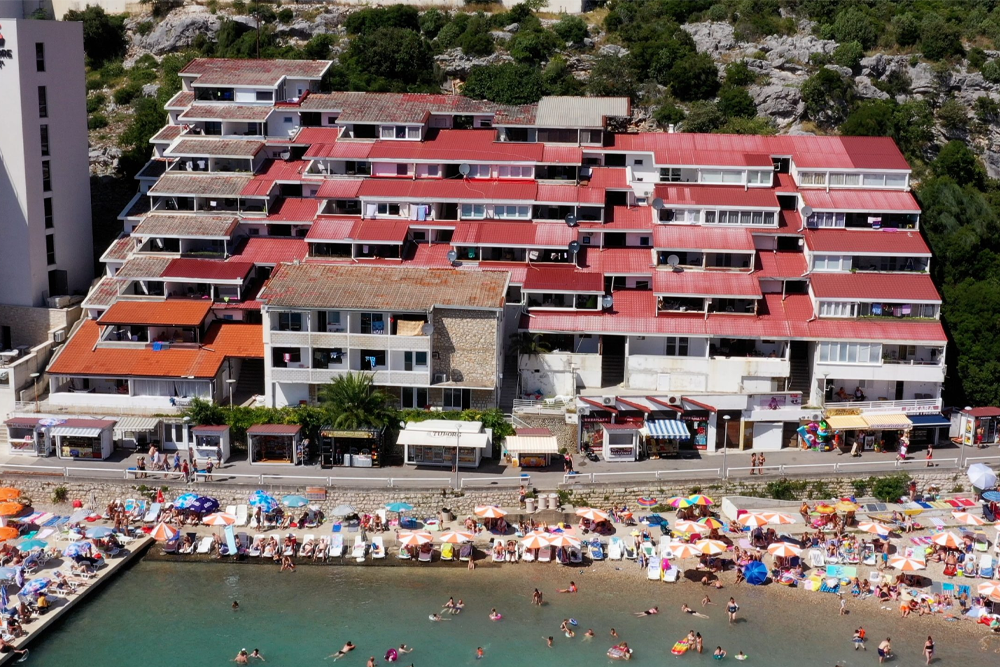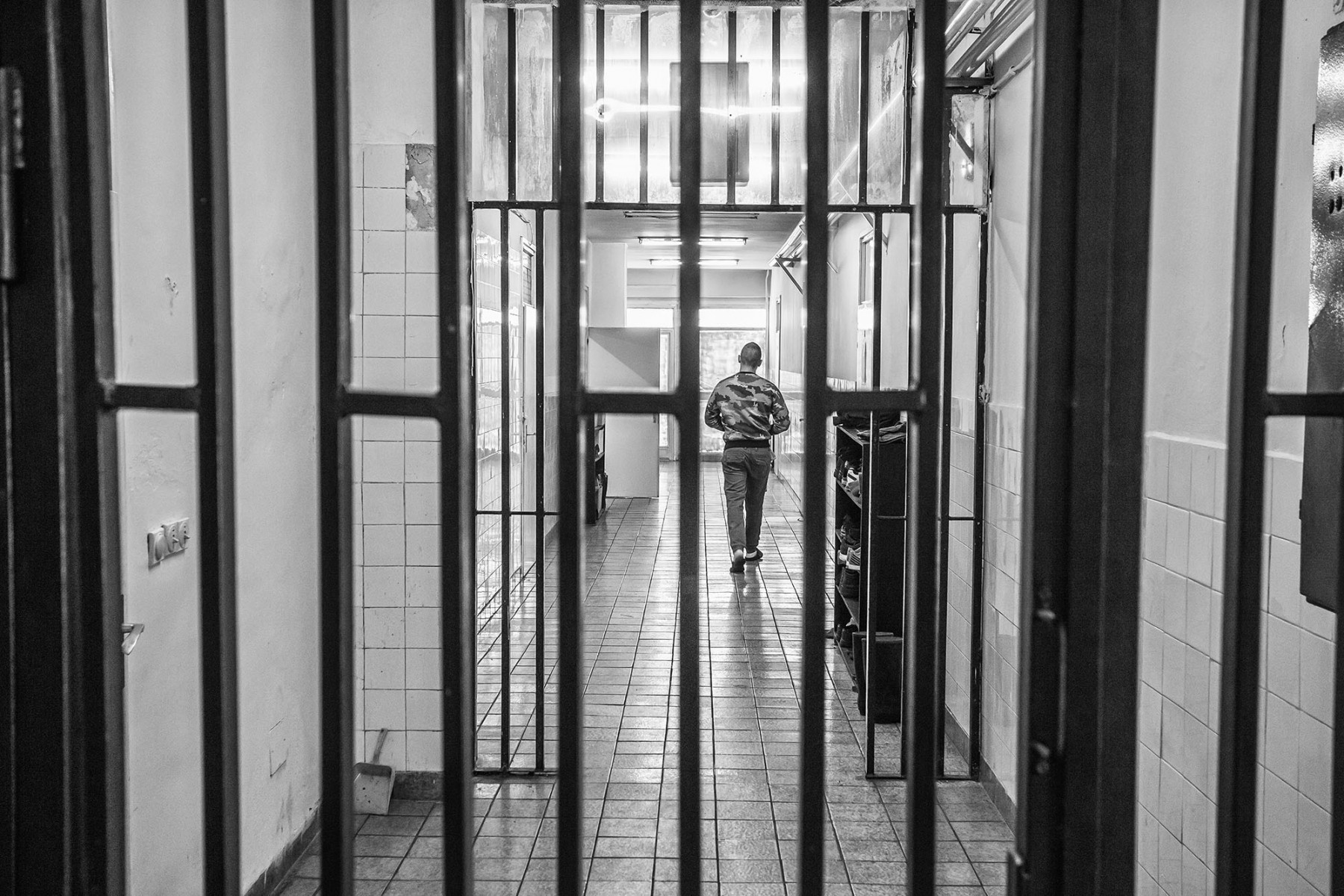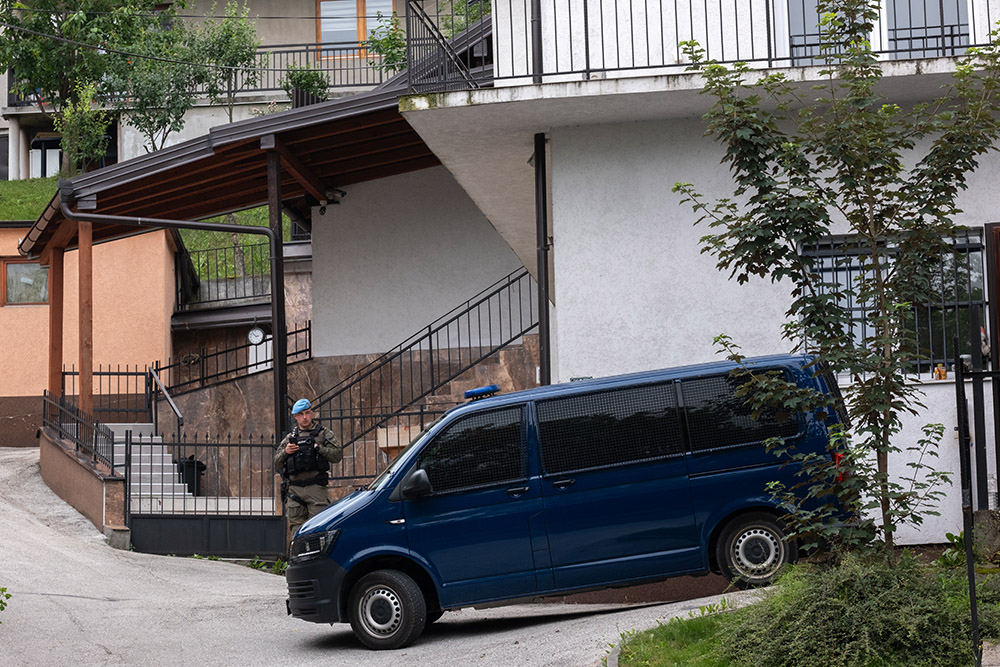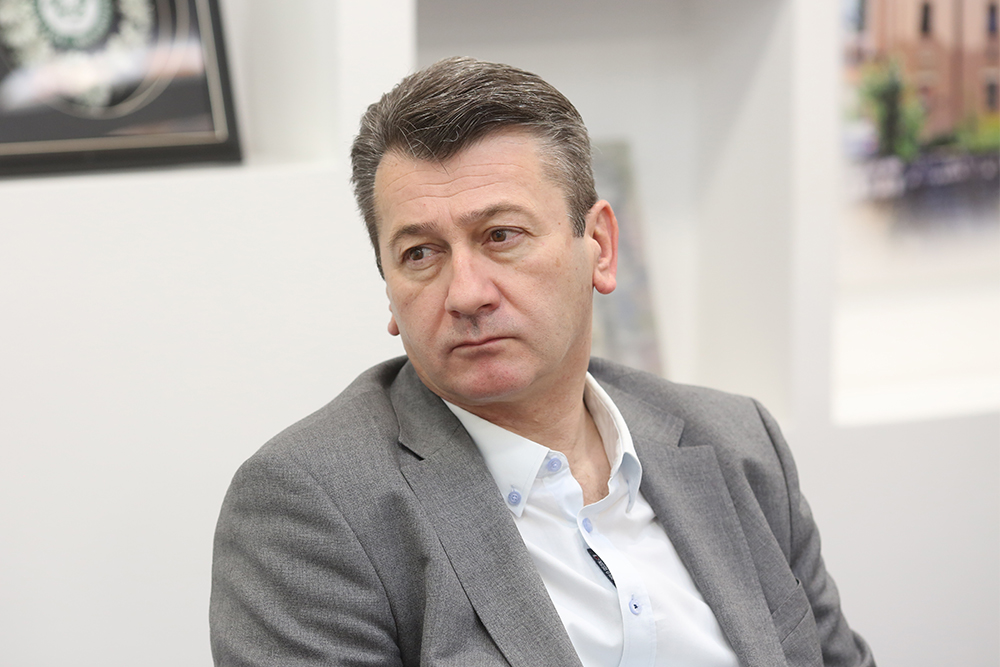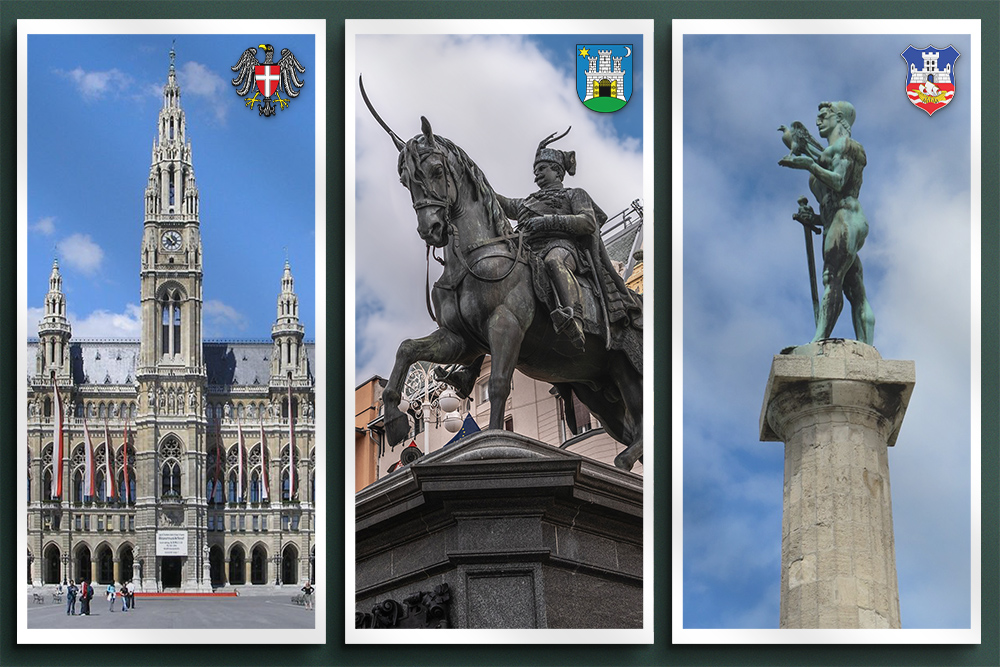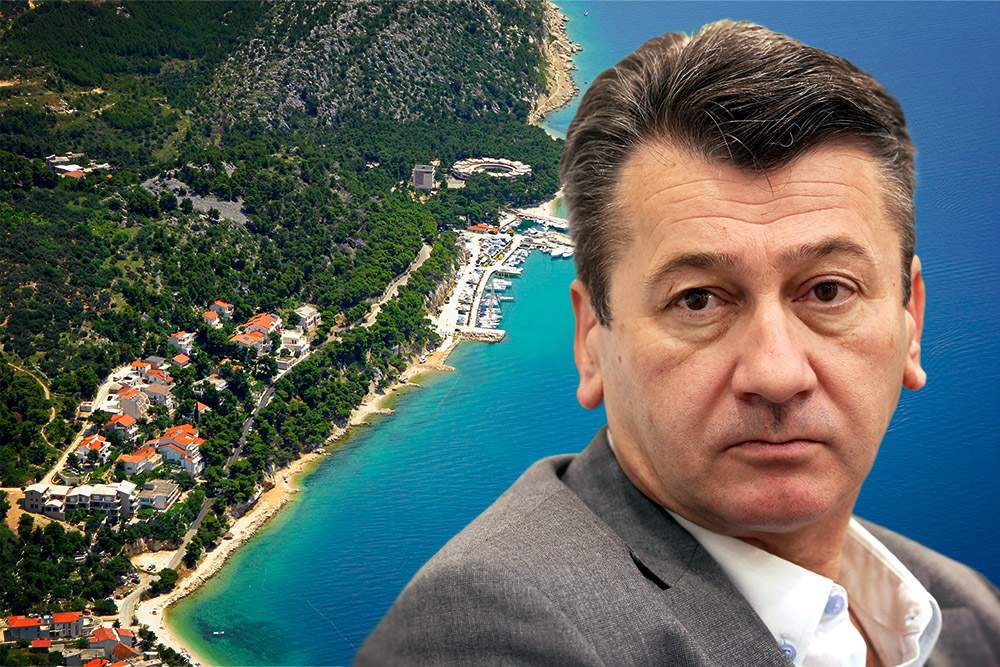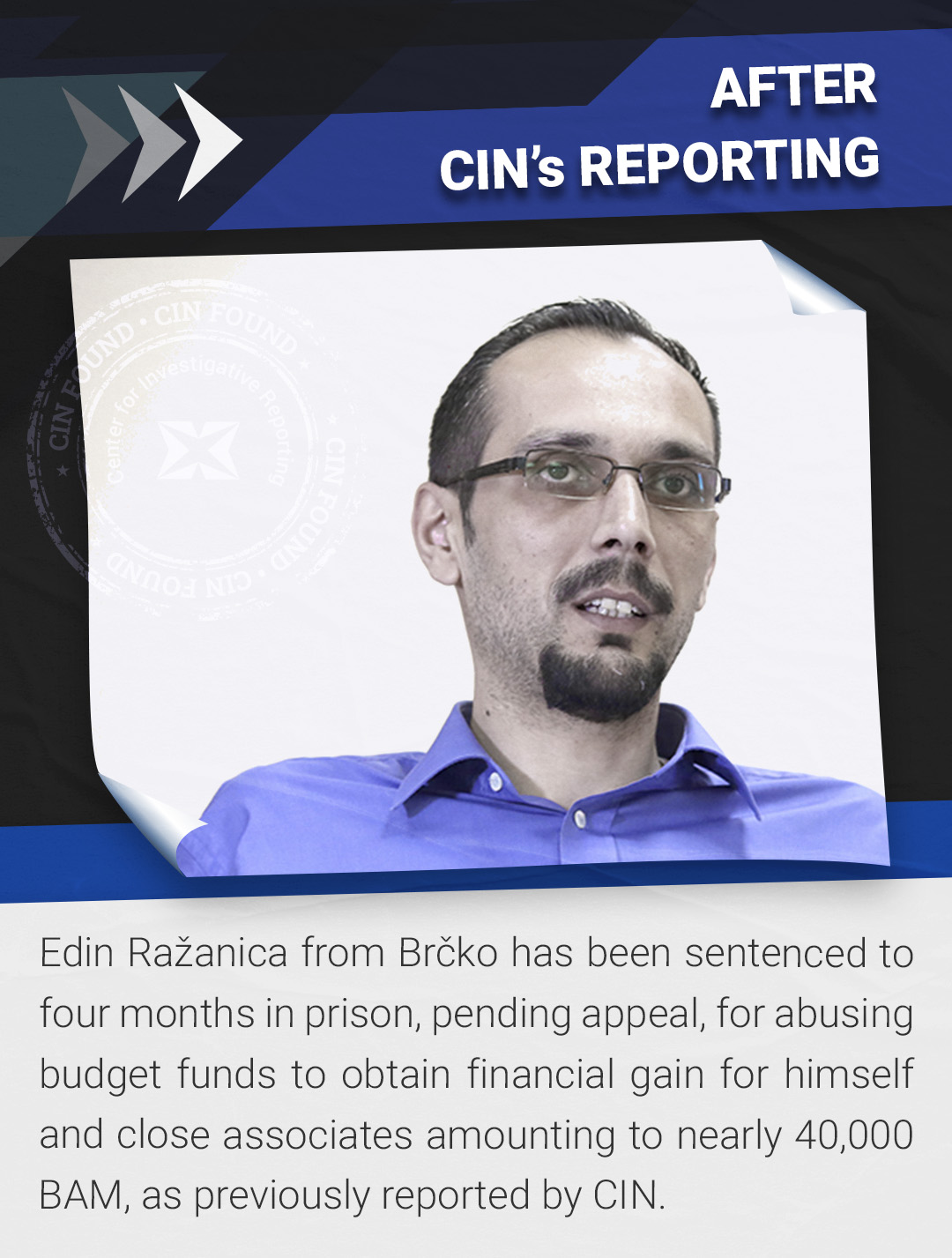The deteriorated worker’s resort on the Adriatic coast in Neum, originally constructed by the former economic giant Feroelektro, has long been a focal point for investors due to its prime location. Plans for a hotel at this prestigious site had been in the works, both by the Municipality of Neum and the company itself. However, in 2021, 19 citizens of Bosnia and Herzegovina (BiH) seized the opportunity, purchasing apartments that sit just a stone’s throw away from the city beach.
These buyers acquired a total of 30 properties through an auction at the Municipal Court in Čapljina, collectively paying over three million BAM. Their vision was to generate income by renting out these apartments during the bustling tourist season. Instead, they found themselves embroiled in a protracted legal battle with the Municipality of Neum over the rightful ownership of these valuable assets. The municipality has barred them from using the properties, paying property taxes, or officially registering as the owners.
“If I have invested money into something, I want to recoup those funds. I want to pay taxes, I want everything to be fair,” says Fadil Spahić from Sarajevo, one of the seven buyers who spoke with reporters from the Center for Investigative Reporting (CIN).“
However, Dragan Jurković, the mayor of this coastal town, disputes the sale of the resort, claiming that according to the regulations of the Croat Republic of Herzeg-Bosnia (HRHB), it belongs to the Hospitality and Tourism Company Odmaralište Neum, established in 1994. However, Feroelektro, the company claiming ownership, presents a conflicting stance.
Investigative reporters from CIN have revealed that neither party holds legal ownership rights over the property; instead, it falls within the jurisdiction of the Federation of Bosnia and Herzegovina. During the property registration process in the privatization procedure, Feroelektro was obligated to remove this property from its books. Conversely, Odmaralište Neum failed to meet the necessary legal requirements for ownership registration. Consequently, under the laws governing privatization, the resort was meant to become state-owned.
Following the conclusion of the war, Federation authorities left the decision-making on the issue of dually registered property in companies to the Office of the High Representative for Bosnia and Herzegovina (OHR), which, however, never acted on it. As a result, Feroelektro d.d. Sarajevo remained inaccurately registered in the land registry as the owner of the resort. This discrepancy prompted the Municipal Court in Čapljina to initiate the sale of the properties, at the urging of the workers, to settle the unpaid wages and contributions owed to them by the company.
Authorities in the Federation of Bosnia and Herzegovina have made no efforts to address the ongoing issue, with the Minister of Trade, Amir Hasičević, describing the situation in Neum as “total chaos”. “The question here is whether there was a legal basis at all. If the property doesn’t even belong to Feroelektro, how can someone attempt to collect from it for Feroelektro’s obligations?”, he said.
However, the buyers are solely focused on obtaining ownership of the properties that the Court has sold to them.
“All that about Herzeg-Bosnia, I don’t care about it. I’m in Bosnia and Herzegovina. I’m interested in what I’ve purchased”, said Spahić.
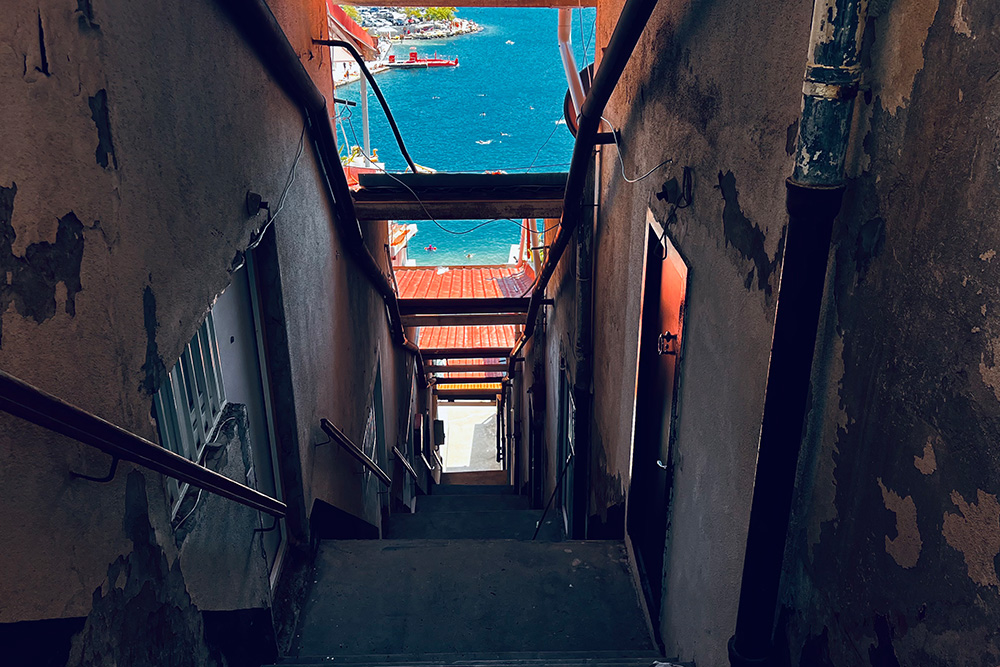
Battle for worker’s square-meters
Facing the city beach in Neum is a multi-story building with dozens of apartments, owned since 1969 by the formerly successful state-owned company Feroelektro d.d. Sarajevo. The company was engaged in both domestic and foreign trade.
Mirsad Jašarević, the former acting director of Feroelektro, explains that until recently, they had 35 apartments, four commercial spaces, and 2,000 square meters of construction land allocated for a hotel according to the Regulatory Plan.
The investment venture collapsed due to the company’s outstanding debts to former employees, leading to the resort being auctioned off by the court in 2021. However, it will turn out that this sale is not only detrimental to the workers but also to the new buyers of the resort and the state.
The battle for workers’ property in Neum has been ongoing since the 1990s. The resort was then targeted for takeover by the Hospitality and Tourism Company Odmaralište Neum. This company was established in the mid-1990s by a group of workers from Feroelektro in Herzegovina, who had lost contact with their parent company in Sarajevo due to the war. The new company was established based on the Regulation on the Temporary Organization of Business Operations of Economic Entities and Legal Entities in the Territory of HRHB.
“So, at the time of the company’s registration, those laws were in effect”, says the mayor of Neum, Jurković.
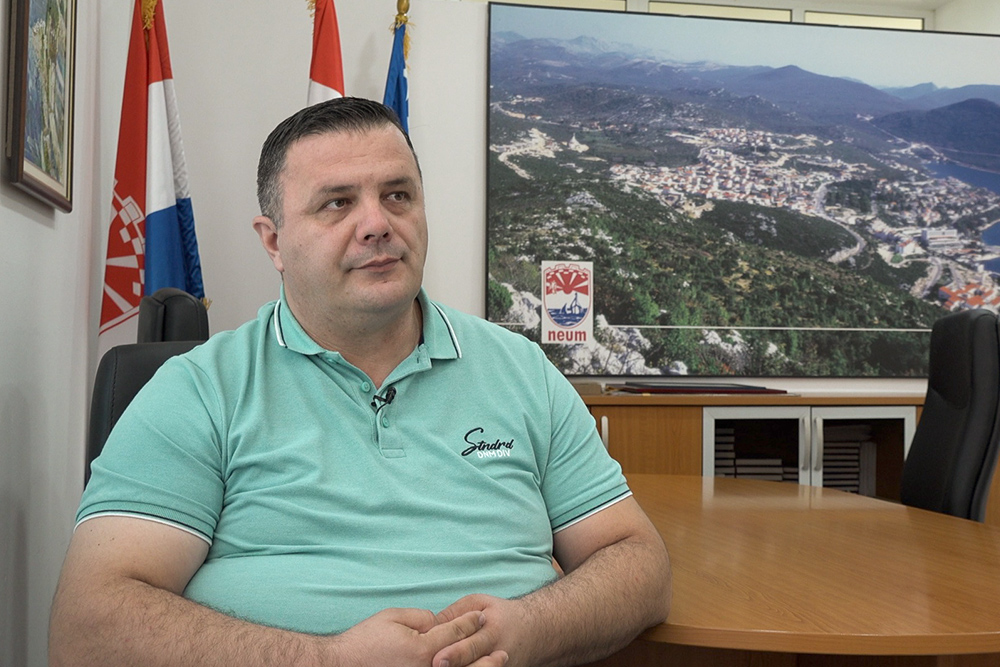
This Regulation allowed employees to establish new companies to take over the assets of their parent companies within the territory of the then Herzeg-Bosnia. No other regulation provided for such transfer of property.
“The legal basis was the state of war”, said Fikret Talić, Assistant Director for Sales at the FBiH Privatization Agency.
Consequently, Odmaralište Neum included the property in its founding capital, but ownership was not officially recorded in the land registry.
“This company was essentially dormant, with no operational activity. No changes were made in the Land Registry. Of course, there was no legal basis for such an action, until all was aligned with the law,” said Talić.
The Regulation ceased to be valid in the post-war years, and following the dissolution of Herzeg-Bosnia and the establishment of the Federation of Bosnia and Herzegovina, the company was required to re-register under the FBiH Business Registration Act, enter its capital, and appoint management, none of which was done.
The Municipal Court in Mostar, currently handling the matter, confirmed to CIN that “only the establishment of this company was recorded”.
In 2000, when the FBiH Privatization Agency approved the privatization program and initial balance sheet of Feroelektro d.d. Sarajevo, the resort in Neum was excluded from the company’s assets. This meant that the property was not up for privatization and could not be owned by Feroelektro.
“We found ourselves in a situation where assets were listed in the books of two separate companies. To finalize the initial balance of Feroelektro, we needed to remove this property from the books to avoid double privatization”, explained Talić.
The FBiH Government at the time failed to find a resolution, leaving the issue in the hands of the Office of the High Representative (OHR), which remained silent. Despite inquiries from CIN reporters, the OHR did not respond.
Under the Initial Balance Act, the resort in Neum was slated to become the property of the Federation. Federation Minister of Trade Amir Hasičević has criticized the government’s oversight, stating that they failed to fulfill their legal obligations: “They simply failed to take the necessary steps as required by law.”
Hasičević raises concerns about the legality of the executive process and the sale of apartments in Neum at the Municipal Court in Čapljina, suggesting that someone will need to “rectify” the situation.
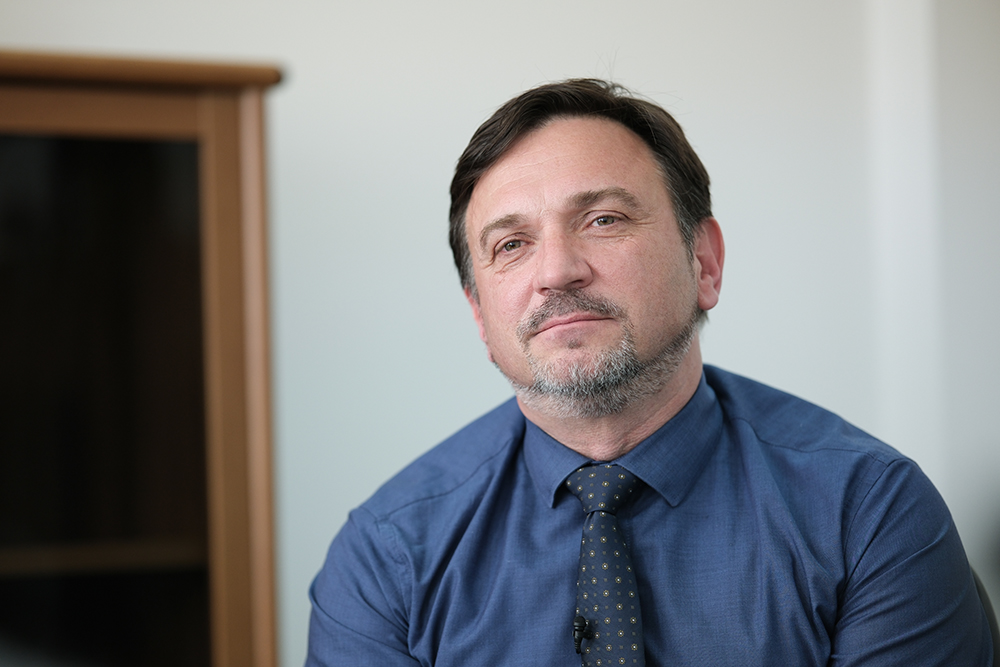
The City Public Attorney’s Office of Stolac, representing the Municipality of Neum, objected to the sale of the properties, but the Court dismissed this objection.
“This part of the property was not privatized, nor could it be further divided and registered as the ownership of Feroelektro d.o.o Sarajevo,” said the Attorney’s office.
During the sale of the properties, the Court in Čapljina did not delve into the issues of privatization and protection of state property based on laws in this area but rather relied on data from the land registers.
“Upon inspection of the land register, it was determined that the properties in question were not registered as the ownership of the company Odmaralište Neum,” said the Court, which is also evidenced by the company’s documentation from 1969 to 1994. Judge Dubravka Soče, who presided over the enforcement procedure, declined to speak with reporters.
For Jašarević, the former acting director of the company, there is nothing moot about the sale and ownership of the resort by Feroelektro: “Well, there is a court, There’s no need for us to act like we’re the state. When the court sells a property, the court guarantees the sale of that property.”
The Government of the Federation of BiH and the Agency for Privatization of the Federation of BiH did not clarify to CIN why the resort was not registered as the ownership of the Federation.
“Well, it’s difficult to pinpoint the culprit here because someone who was supposed to take certain actions dropped the ball and didn’t do them on time, and then someone else capitalized on that”, concluded Fikret Talić.
No Tax, no Title Deed
In a bid to settle outstanding debts, Feroelektro plans to use proceeds from the sale of properties in Neum to compensate 87 former employees for unpaid salaries and contributions. The company expects to allocate around 2.6 million BAM out of the total three million BAM generated from property sales for this purpose.
“Then everyone was claiming Neum. Everyone was trying to prevent it. So I hope that finally we, the workers, will have some benefit from Neum”, said Ediba Hamamdžić from Sarajevo, a former employee of Feroelektro.
“That’s what our fathers built. It was done by the workers of Feroelektro, who the authorities owe to pay, their pensions, salaries, honestly earned”, said Fadil Spahić, who bought four properties for more than 330,000 BAM.
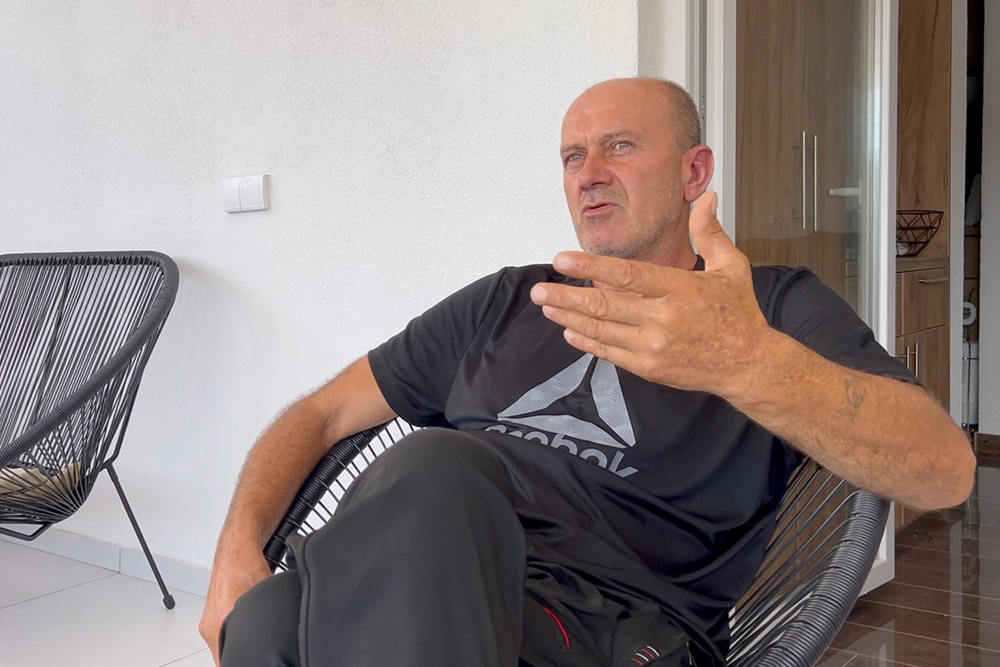
At the auction, there were 35 apartments ranging from 40 to 50 square meters, three commercial spaces, three parcels of land, and a garage. Many buyers participated in the auction, trusting the legality and not questioning the ownership of the properties.
One of them is Fahrudin Kadušić from Tešanj, who, through his companies, paid over half a million marks for five properties in Neum: “For us, the court is legitimate. When court sells, the court transfers the ownership on us, and that’s it.”
The court ultimately sold 30 properties. Some buyers obtained 40-square-meter apartments for 40,000 BAM, while others paid between 150,000 and 180,000 BAM for the same size apartments. However, despite these transactions, the proceeds from the sales remain in the court’s account, awaiting distribution to the disenfranchised workers.
Mayor Jurković expressed his concerns, stating, “The sale itself did not bring any benefit to workers.”
All buyers have received legally binding court decisions awarding them properties in Neum. However, to finalize the ownership registration in the land registry, they are required to settle taxes. Before the Neum Tax Office could proceed with tax calculations, the municipal Commission needed to estimate the value of the purchased properties. This process was obstructed by the municipality.
“We practically tied the hands of the Commission with a decision of the Municipal Council, preventing them from estimating the value of the properties”, admitted Mayor Jurković. This action was taken to halt any potential property sales.
Buyers have filed complaints with the Federation Ministry of Finance and the Tax Administration of the Federation of Bosnia and Herzegovina (FBiH) after being prevented from paying taxes, but these institutions have not responded. Federation Finance Minister Toni Kraljević declined to comment when approached by reporters. Responding to inquiries from CIN, the FBiH Tax Administration stated that the tax assessment basis is determined by the Neum Municipality Commission, and any deviation would constitute a breach of the Real Property Transfer Tax Act of the Federation of Bosnia and Herzegovina.
Mayor Jurković has also alleged that the court in Čapljina violated the Regulation Plan for Center I Neum by dividing the property into separate units without certification from the municipal Department for Construction and Spatial Planning. This condominium subdivision resulted in the resort having multiple owners, preventing its sale as a whole for hotel development purposes.
Reporters have revealed that the certification actually exists. In February 2018, the Neum Municipality ordered the subdivision of the property by preparing a Condominium Subdivision Study, which was then forwarded to the competent land registry office of the Municipal Court in Čapljina.
However, despite the approval, the Municipality attempted to halt the subdivision, claiming that the property was not intended for residential use but for hotel construction. The competent Federation Administration for Geodetic and Property Legal Affairs (FGU) informed the Court that the cancellation of the subdivision was not possible as the Municipality’s request was not by the law. This stance was upheld by the Court.
Most owners purchased the properties intending to rent them out and make a profit. According to the Regulation Plan, the Feroelektro resort is designated for tourist purposes.
“I want to earn from it (…) I cannot rent out the apartments because they have placed themselves above the court”, complains Fadil Spahić.
Struggles with Inspections
The purchased apartments were run-down and unfit for habitation, requiring renovations. However, the inspection is hindering this process as the mayor finds it unacceptable to allow “works in a complex without an owner.”
As a result, the Department for Construction and Spatial Planning of the Neum Municipality marked the resort with yellow tape immediately after the court sale. Buyers are prohibited from renovating and adapting the apartments without the Municipality’s approval, a building permit, and project documentation.
“They wouldn’t even allow us to paint. Why? They won’t let us install ceramic tiles in our own apartments”, laments buyer Šemso Mujezin from Vogošća.
“You’re doing some work inside, and someone just barges in without any written order ever being shown.”
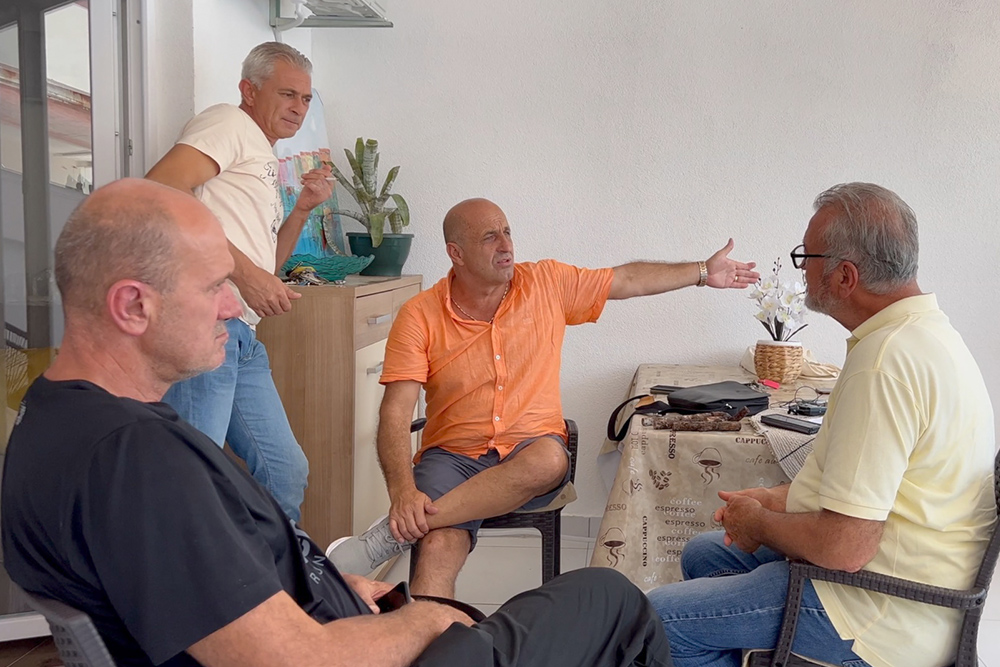
Goran Menalo, the head of the municipal Inspection Service, explains that their inspectors typically “do not require specific orders for inspections, as they conduct them as part of their official duties”. “If they observe construction works taking place, they will naturally knock and enter.”
The Neum Municipality has sued Feroelektro through the City Public Attorney’s Office to contest the condominium subdivision, while the Cantonal Public Attorney’s Office of the Herzegovina-Neretva Canton has initiated a lawsuit to establish ownership of the resort in Neum. Both cases are ongoing.
“When the Municipality has such a significant interest, why didn’t it acquire everything? They’re used to taking things from the state for free, like these properties, the seafront, the coastline, parking lots…”, remarked buyer Šemso Mujezin.
Buyers do not dispute the new legal proceedings through which the actual ownership of the property will be established, but having purchased the properties from the court and with legally binding judgments, they consider the apartments to be their own.
“We do not believe that we are failing to respect the court’s decision as such”, responded Mayor Jurković to repeated inquiries about the non-enforcement of court rulings.
“I don’t feel good about this. This wasn’t purchased at a marketplace. We bought something, and we can’t get the title deed. We bought something, and it’s not ours,” concluded buyer Muhamed Avdić from Živinice.

